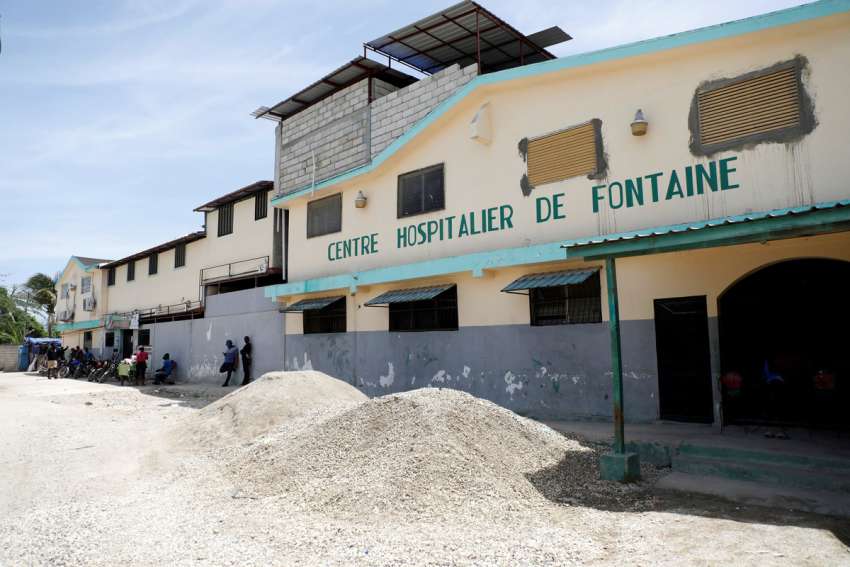The Fontaine Hospital Center in Cité Soleil -- an extremely impoverished area of Haiti's capital, Port-au-Prince -- had to be evacuated Nov. 15 after armed gang clashes enveloped the facility.
"Ultimately, the people paying the price for this violence are those who are most in need," said Jennifer Nazaire, the country representative for CRS in Haiti.
The hospital is one of the few medical facilities left in the ravaged area.
The warring groups included the Brooklyn gang, led by "Ti Gabriel" (Gabriel Jean-Pierre) and the "G-Pep" gang coalition, with hostilities sparked by the recent death of gang leader Iscar Andrice, according to the news outlet Haiti Libre.
More than 100 patients -- among them, 40 children including several newborns -- fled the building, escaping in armored police vehicles to a private facility as gang members riddled hospital walls with bullets and set neighboring houses on fire.
Hospital director José Ulysse clarified initial media reports that the gangs had taken hospital patients and staff hostage, saying that the gang war "prevented anyone inside from leaving the premises."
Carl Sebastien Vitrant, a social worker at the hospital, confirmed Ulysse's statements, telling The Associated Press that "when the men arrived, the staff members had already evacuated from their work stations."
"The men were very nervous and they broke the main gate and other doors," said Vitrant. "They fired their guns to take control of the interior of the hospital."
Over the past few years, Haiti has spiraled into what the United Nations office in Haiti called a "catastrophic spiral of violence." In July 2021, Haitian President Jovenel Moïse was assassinated, exacerbating Haiti's multiple, sustained crises such as political instability, natural disasters, foreign intervention and international debt.
Haiti has reported more than 3,000 homicides in 2023, and over 1,500 incidents of kidnapping for ransom.
Some 200,000 have fled their homes, leaving thousands of children unable to attend school. Sexual violence, including gang rape, has escalated against the nation's women and girls.
On Oct. 2, the U.N. Security Council authorized the deployment of an international security mission to aid Haiti's own police force in countering gang violence, which has spiraled out of control in recent months.
While Burundi, Chad, Senegal, Jamaica and Belize have pledged troops for the mission, Kenya's high court has blocked its deployment of 1,000 officers who were set to lead the international effort.
In the meantime, said Nazaire, "many people" in Haiti continue to "struggle daily to obtain the basics like food and health care.
"The increase in violence and the targeting of places that are normally considered a refuge, like hospitals, is deepening a humanitarian crisis that is already making daily life a constant challenge," she said.


